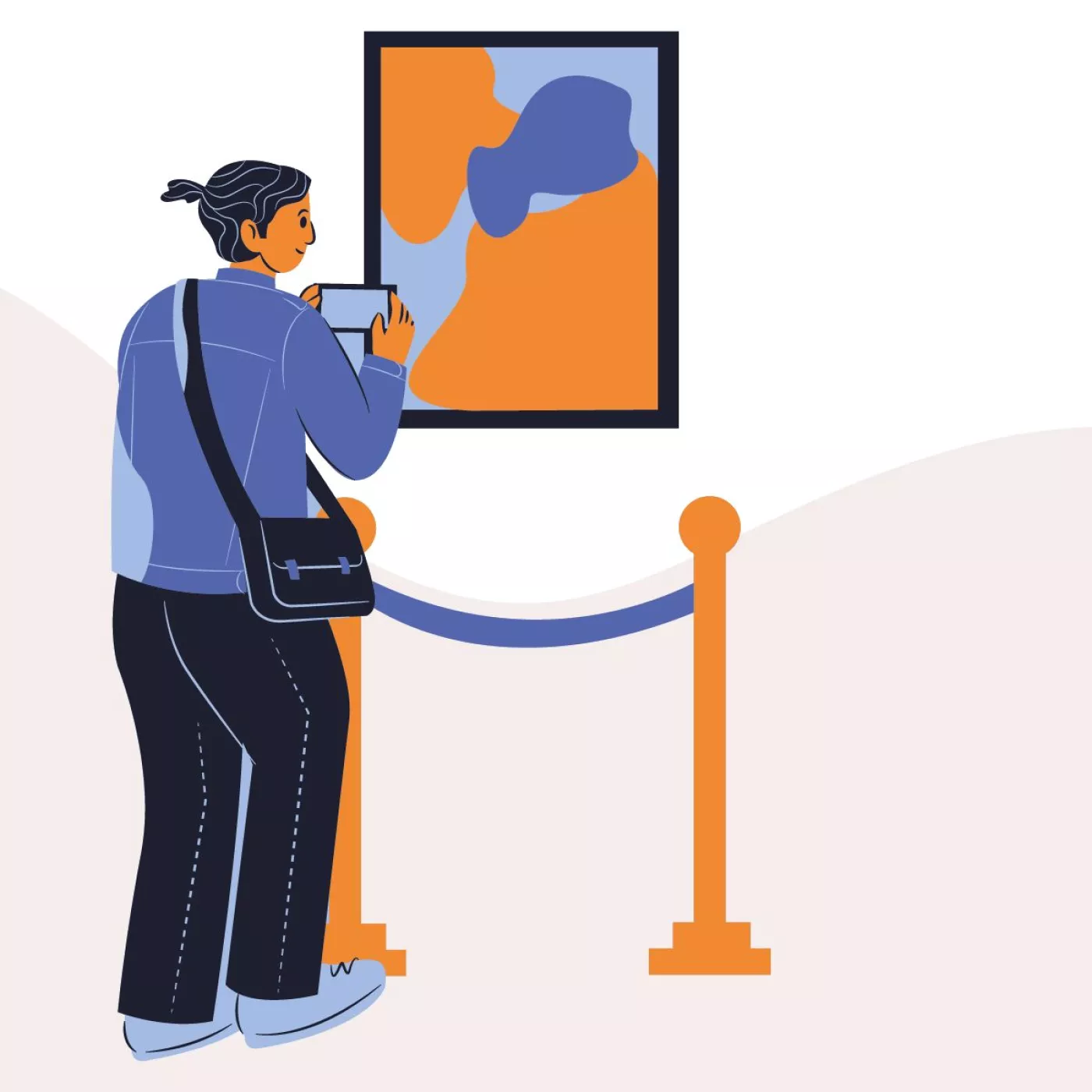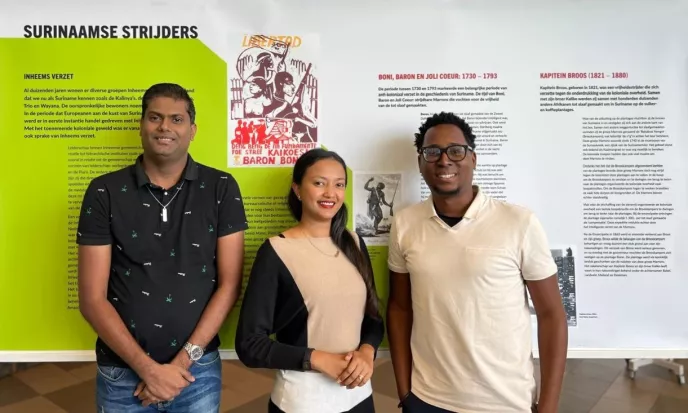Ketikoti and cultural heritage: taking the next step with students

Before Ketikoti, we spoke with Amos, Rebekka and Akaash. They have been selected for the Cultural Heritage Scholarship Programme together with 19 other young professionals from Indonesia, Nigeria, Sri Lanka, Suriname and South Africa. In September they will start a cultural heritage master's programme in the Netherlands. The start of this programme represents an ambitious and crucial step towards further increasing cooperation in the field of cultural heritage between the Netherlands and the countries of origin.
Congratulations on your participation in the Cultural Heritage Scholarship Programme. What was your motivation for applying?
“Suriname shares a painful history with the Netherlands. A history of exploitation, unequal power relations, colonisation, slavery and forced migration.” says Amos, researcher at the National Archives of Suriname. “With the use of funds obtained from trading slaves, the system of slavery, the plantation economy in the colonies, and the exploitation of colonial assets, the Netherlands has been able to develop itself as a country. Suriname, on the other hand, is a country in development. We are not yet where we need to be. The Cultural Heritage Scholarship Programme helps to assist Suriname in this. It helps us as young professionals to develop further.”
“There is little expertise in the field of art and cultural heritage in Suriname.” adds Akaash, Head of Education at the National Archives of Suriname. “For example, there is no master's degree in this field that you can follow in Suriname to deepen your knowledge. As part of this programme, we will therefore be studying ‘Arts and Heritage: Policy, Management and Education’ at Maastricht University from September on. There we will gain knowledge and skills that we still lack in Suriname. This programme will therefore help us a lot. As soon as we return, we can apply the relevant knowledge and tools.”
The international context of the Cultural Heritage Scholarship Programme was also an appealing factor. Rebekka, researcher at the National Archives of Suriname, says: “I am also curious about the insights of other participants in the programme. What do they think about the history of slavery? Especially from other colonial countries such as Indonesia and South Africa. We can also learn from their insights, apply them and collaborate.”

Picture: Akaash, Rebekka and Amos in the National Archives of Suriname.
An unbroken chain with the colonial past
On 1 July, we commemorate the abolition of slavery in Suriname and the Netherlands Antilles with Ketikoti (translated: broken chains). The 3 Surinamese young professionals work for the National Archives of Suriname telling stories from slavery with focus on the perspective of the enslaved.
“We think it is important to tell the untold stories. Stories of the oppressed and the struggles that have been fought. It is important that we raise awareness of this and convey it to the public. We attach great importance to the preservation of tangible and intangible cultural heritage and want to promote awareness of this among both current and future generations.” says Rebekka.
Amos nods in agreement: “In addition to the intangible heritage, the tangible heritage is indeed also an important aspect. During the colonial period, cultural and other valuable objects were transported from Suriname to the Netherlands. These objects are a symbol of the unbroken chain of colonial oppression. Returning these objects to Suriname is important for the reparation of cultural and historical injustice and could mean a symbolic closure of inequality and recognition of the painful past.”
“The objects are not yet home and therefore the breaking of the chains has not yet been completed.” continues Amos. “By returning stolen cultural heritage, we can build a bridge to new and improved cooperation based on equality and respect for both countries. But first, knowledge and museum infrastructure must be strengthened. Our participation in the programme is key to that.”
Akaash agrees: “With our participation in the Cultural Heritage Scholarship Program, we are going to make a huge change. In Suriname, art and heritage are not seen as important. We want to change that perspective. After our participation, the three of us will be able to promote art and heritage in Suriname and take it to greater heights.”
About the Cultural Heritage Scholarship Programme
Due to the imbalance of power during the colonial era, cultural objects were often improperly obtained. The Dutch government is keen to help rectify this historic injustice by returning cultural heritage objects to their country of origin and by strengthening international cooperation in this area. The Cultural Heritage Scholarship Programme therefore focuses on strengthening knowledge about cultural heritage.
The Cultural Heritage Scholarship Programme aligns with Dutch policy based on the Advice on Colonial Collections and Recognition of Injustice from the Gonçalves Commission. The programme is managed by Nuffic and funded by the Ministry of Foreign Affairs of the Netherlands.
Read more about the Cultural Heritage Scholarship Programme.